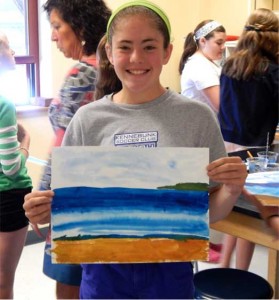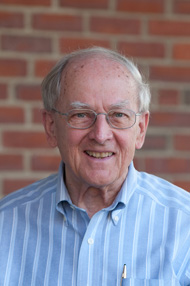Mission and History
 The Education Foundation of the Kennebunks and Arundel (EFKA) is dedicated to enhancing academic excellence in grades K-12 in the public schools of Kennebunk, Kennebunkport, and Arundel. EFKA works in partnership with administrators, teachers and community members to help provide students with inspiring, creative and innovative programs. For every dollar raised, 84 cents is spent on grants for K-12 students and staff.
The Education Foundation of the Kennebunks and Arundel (EFKA) is dedicated to enhancing academic excellence in grades K-12 in the public schools of Kennebunk, Kennebunkport, and Arundel. EFKA works in partnership with administrators, teachers and community members to help provide students with inspiring, creative and innovative programs. For every dollar raised, 84 cents is spent on grants for K-12 students and staff.
EFKA is an independent, charitable 501(c)(3) organization, governed by an unpaid Board of Directors. EFKA has no office space or paid staff; all work is conducted by volunteers including young people, parents, grandparents, and other individuals—both active and retired, both year-round and part-year residents.
EFKA raises private funds from residents and other generous individuals and from area businesses and non-profits. Everything we accomplish on behalf of our children is made possible by our communities’ generous gifts of time and money.
EFKA accomplishes its mission through grant-making and other initiatives that celebrate learning. Grants are of two types. Professional development grants aim to enhance knowledge and application of best practices in education. Grants for student programs aim to increase students’ ability to succeed in the 21st century economy by supporting hands-on learning and cutting-edge ideas.
Mission
The mission of the Education Foundation of the Kennebunks and Arundel is to work with the schools of RSU 21 to inspire and ignite young minds by funding creative and innovative programs for students and professional development for teachers and other staff.
We inspire and ignite:
- Student aspirations through creativity and curiosity
- Teachers through professional development
- Community collaborations
- Risk-taking
- Experiential learning
- Leadership and entrepreneurship
- Enthusiastic lifelong learners
History
When Ted Damon retired from his executive position at the Singer Corporation, he didn’t just sit back and relax. Instead, he turned his strategic planning from sewing machines to students. Damon worked with Sue Cressey on a special program for Kennebunk High School students. In working with Sue Cressey, Ted realized that there were KHS students who were unmotivated in spite of dedicated, talented, and extremely skilled teachers.
Damon felt there had to be a way to change this situation. At Cressey’s suggestion he investigated the Cape Elizabeth Education Foundation, which seemed to have captured students’ attention with innovative teaching tools. He also spent time with teachers, asking them for their wish lists—what they would do with students if money were not an issue. And in June 2006, with a handful of like-minded parents, Damon formed the Education Foundation of the Kennebunks.
The first program funded by the Education Foundation of the Kennebunks was a trip for about 200 Kennebunk High School freshmen to the Space Science Center in Bangor. Damon was delighted with the teamwork of the students and their fascination with the different roles they played. It was a real-life experience on their level.
Since that first program, Damon and the team have built on their success, continuing to spread the word to local educators and to collect generous contributions from the community. In its ten years of existence, the Education Foundation has funded more than $900,000 of programs. Its board has grown to 14 dedicated people, both parents and professionals, all volunteers focused on the common goal of quality education.
Damon is delighted with the results but he’s not done yet. He believes the lasting value of the Foundation’s investment will be realized when the K-12 curriculum is able to carry forward the creative ideas and programs that have been funded thus far. That’s why 27 percent of Foundation funding goes to teacher training, including initiatives such as Learning and the Brain workshops and the National Science Teacher Association conferences.
Engaging other institutions with the same motives, in order to broaden opportunities for students and educators, is also on the horizon. With fiscal concerns always at hand, EFKA’s goal is to work with other education foundations to forge partnerships where possible. Tapping charitable organizations for new funding sources is also on the table. Damon takes in what he’s accomplished. “When one sees the enthusiasm and engagement of students and teachers, that is the best test of success at the moment.”
